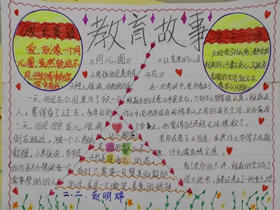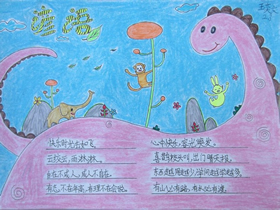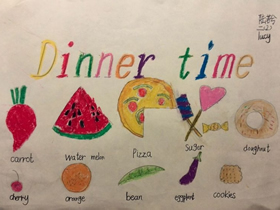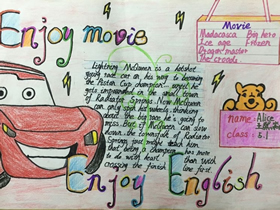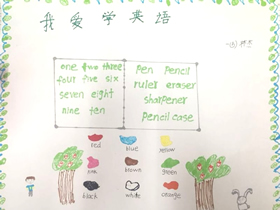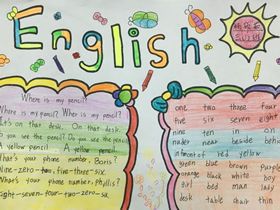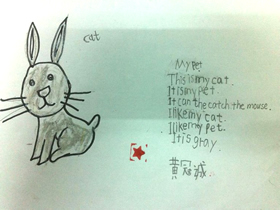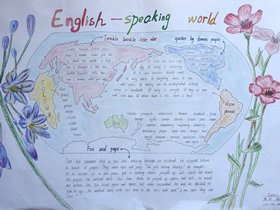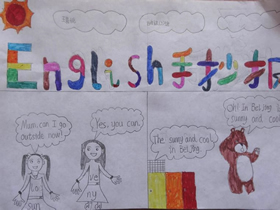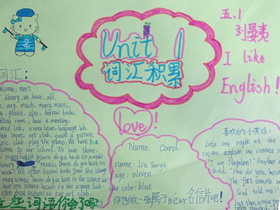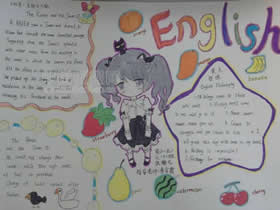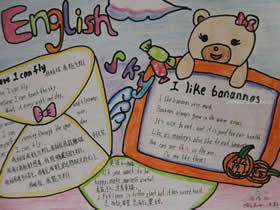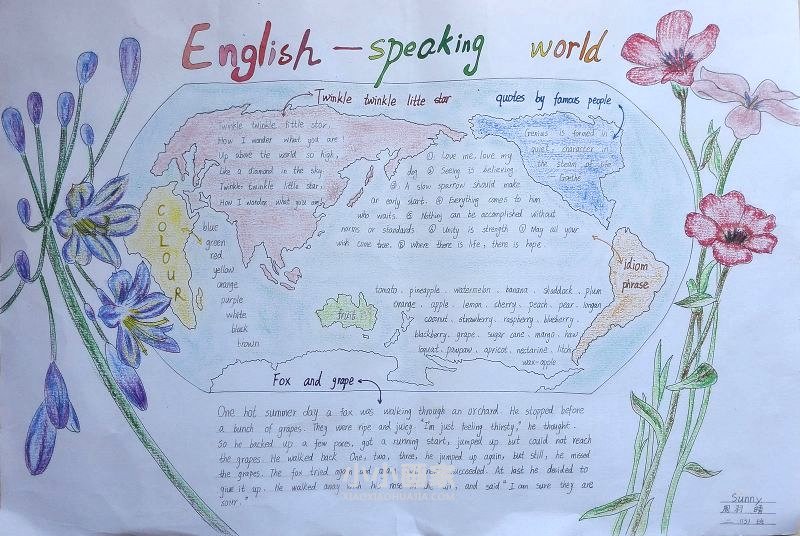
二年级的单词知识点
形容词类:
good好的 nice好的 small小的
warm温暖的 hot热的 cool凉爽的,酷的
代词类:
my我的 your你的 their他(她、它)们的
球类 :
football足球 basketball篮球
小太阳
食物类:
meat肉 noodles面条 rice米饭 sweets糖果 onion洋葱
ice cream冰淇淋 banana香蕉 milk牛奶 orange橙
tomato—tomatoes(复数)西红柿 dumpling饺子
彩旗分割线
服饰类:
T-shirtT恤衫 dress连衣裙 clothes服装,衣服 trousers裤子 shirt衬衫 shoes鞋 jacket夹克 sweater毛线衣 coat外套
交通工具类:
train火车 bus公共汽车 bike自行车 car小汽车 plane飞机 ship轮船
四季:
spring春天 summer夏天 autumn秋天 winter冬天
彩旗分割线
语音部分单词:
like喜欢 bike自行车 kite风筝 ride骑
fly飞 apple苹果 bat球棒 bird鸟
car小汽车 cap帽子
duck鸭子 dog狗 door门
elephant大象 egg鸡蛋
frog青蛙 fish鱼 girl女孩
head头 hat帽子
ice冰 ice cream冰淇淋
monkey猴子 nose鼻子 noodles面条
rabbit兔子 snake蛇
turtle乌龟 train火车 umbrella雨伞
violin小提琴 window窗户
卖萌蔬菜动图特殊用途
其他类:
team球队,运动队 mouth嘴 everything每件事,所有事物 really很,非常 too也,太 party聚会 poster海报
great太好了,好极了 goal进球,得分 moon月亮 Hooray(表示激动与高兴的欢呼声)好,好哇 music 音乐 child孩子—children 孩子们(复数)
hair头发 firecracker鞭炮 present礼物 have有 wish祝愿 in在……期间,在……时候 dinner正餐,主餐
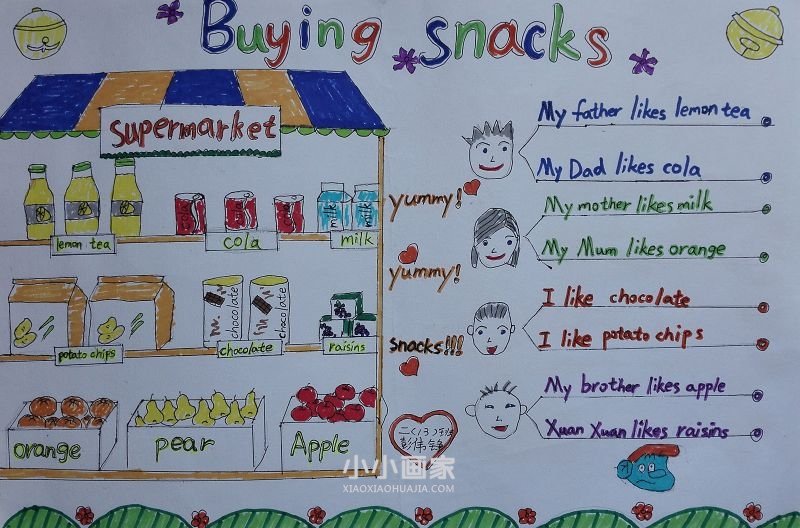
二年级上学期英语语法总结
1. play 与球类搭配时,中间不加the
例如: play football 踢足球
play basketball 打篮球
2.play与乐器搭配时,中间要加the
例如: play the flute 吹笛子
play the drums 打鼓
(注:play 与乐器搭配时, 中间加the,但是也可以加像her, his, my, your, 等形容词性物主代词。这一点将在以后学形容词性物主代词时再讲解,暂时了解就可以。)
常见的错误:
play the football 错误
play the basketball 错误
play flute 错误
play drums 错误
3.要想表达:“在某个季节”,那么直接在季节前加in
例如:
in spring 在春季
in summer 在夏季
in autumn 在秋季
in winter 在冬季
常见的错误:
in the summer (错误)
at winter (错误)
at the spring (错误)
on autumn (错误)
4.要想表达:“在早、中、晚”,那么用in the再加上早中晚例如:
in the morning 在早晨、在上午
in the afternoon 在中午、在下午
in the evening 在晚上
常见的错误:
in morning (错误)
at afternoon (错误)
in evening (错误)
(注:night特殊,要用at)
例如:at night在晚上
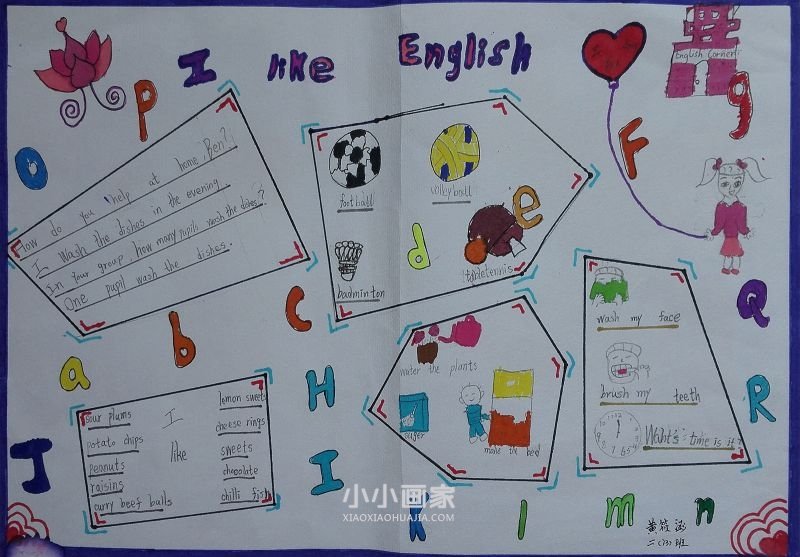
5.在几点钟前面要用at,无论是整点、半点、还是几点几分,都在时间前直接加at。
例如:
at five o’clock 在五点
at half past eleven 在十一点半
at twelve ten 在十二点十分
常见的错误:
at the five o’clock 错误
in half past ten 错误
on the ten o’clock 错误
6.在城市、国家等大地点前面直接加in,并且城市、国家的首字母需要大写。
例如:
in China 在中国
in England 在英国
in Beijing 在北京
in Daqing 在大庆
常见的错误:
in the China (错误)
at England (错误)
on Beijing (错误)
at the Daqing (错误)
7.什么事第三人称单数?
(1) he
(2) she
(3) it
(4) 一个名字如:Daming,Amy, Lingling 等等
(5)能用he, she, it 代替的词, 如my father (可以用he 代替)my mother (可以用she 代替) the little cat (可以用it 代替) 等等.
8.第三人称单数的用法:
当主语是第三人称单数时,动词要用单数形式。
例如:
She likes English. (因为主语she 是第三人称单数)
My father goes to work by bus.(因为主语 my father 是第三人称单数)
The little boy reads books at the weekend.(因为主语 the little boy 是第三人称单数)
He listens to CDs in the morning.(因为主语 he 是第三人称单数)
注意比较:
I like English.( like 不需要变成likes, 因为I 不是第三人称单数)
You read books in the evening.(read不需要变成reads, 因为you 不是第三人称单数)。
They play football in the afternoon. (play 不需要变成plays, 因为they 不是第三人称单数)。
We watch TV at the weekend.( watch 不需要变成watches, 因为we不是第三人称单数)。
Lingling and Sam play basketball at the park. ( paly不需要变成plays, 因为Lingling and Sam不是第三人称单数)。
9.用什么提问,就用什么回答
例如:
(1) Do you like basketball?
Yes, I do.\ Yes, we do.
No, I don't. \ No, we don’t.
因为Do 提问,所以, do 回答。
(2)Does he play with Amy?
Yes, he does. \ No, he doesn’t.
因为Does提问,所以does 回答。
(3) Is he ten?
Yes, he is.\ No, he isn’t.
(注:用Are you提问特殊)
例如:Are you a boy ?
Yes,I am. \ No, I am not.
Yes, we are. \ No, we are not.
因为you 有两个意思。
当“你”讲时, 回答要用I , 因此后面要加am
当“你们”讲时,回答要用we, 因此后面要加 are
10.表示乘坐某种交通工具,用by直接加交通工具
例如:
by bus 坐公交车
by car 坐小汽车
by bike 骑自行车
by train 坐火车
by plane 坐飞机
by boat\ by ship 乘船
常见错误:
by the bike
by a train
11.表示想要做某事,用want to加动词原形
例如:
I want to watch TV.
They want to go to Beijing.
He wants to have breakfast. (因为he 是第三人称单数,所以want要加s, 又因为want to 后面要求加动词原形,所以用have,不用has)
但是如果就想表达:“想要某物”直接用want,不需要加to。
例如:
I want a book.
He wants two desks.
12.节日、城市、国家、人名等词叫专有名词,它们的首字母都要大写。
例如:
China 中国
Beijing 北京
Christmas 圣诞节
Lingling 玲玲
13. football和footballer的区别
football是足球
footballer是足球队员
例如常考题型:
(1)I play _____.
A football B footballer
答案:A
(2)I am a ______.
A football B footballer
答案:B
14.本册书其他常考短语:
at the weekend 在周末
on holiday 度假
at Chinese New Year 在春节
at New Year 在新年(指元旦)
listen to CDs 听唱片
listen to music 听音乐
watch TV 看电视
15送给某人某件礼物或物品时要用for
例如:
A present for you. 送你一件礼物。
A book for you. 送你一本书。
An eraser for you. 送你一块橡皮。
Two pens for you. 送你两支钢笔。
Ten rulers for you. 送你两把尺子。
回答时用Thank you.
16.询问时间用:What’s the time?
回答用:It’s -----.
例如:
-- What’s the time?
--It’s five o’clock.
-- What’s the time?
--It’s half past nine.
 儿童画画图片大全
儿童画画图片大全